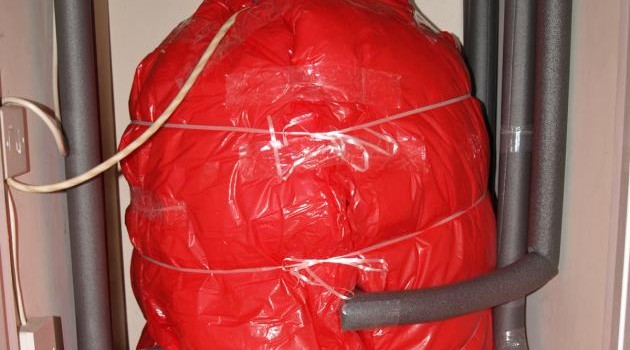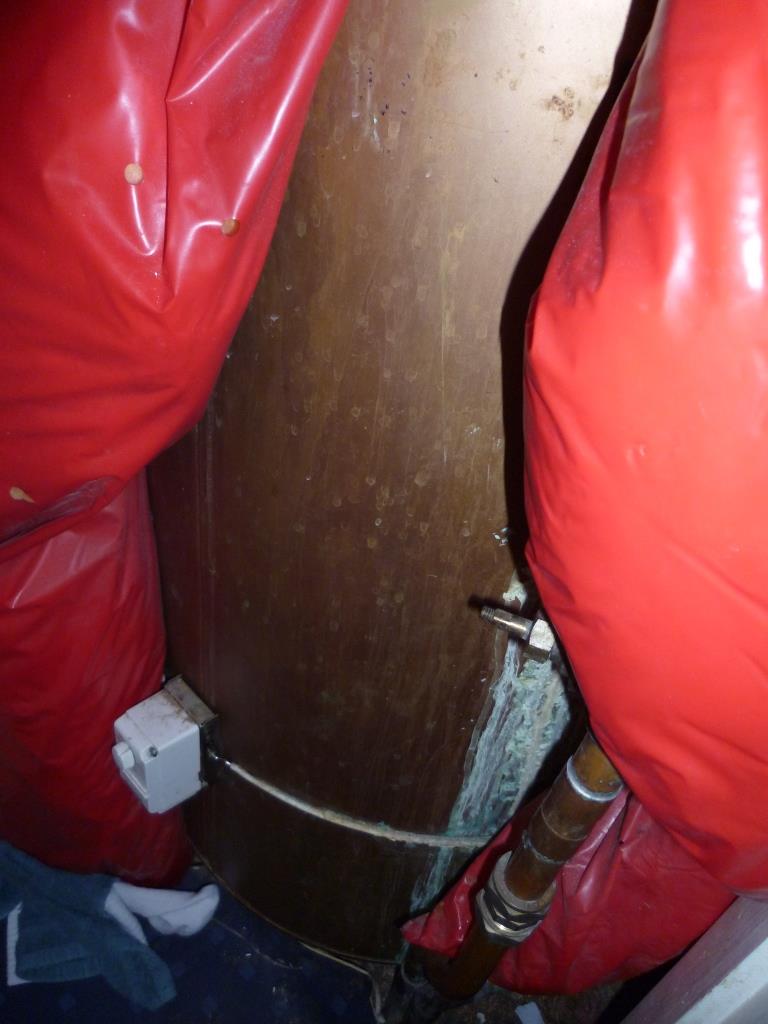
For those with hot water tanks, insulating them is really important. The tank is where your hot water gets stored after being heated by the boiler, and if it is poorly insulated, it will lose heat much quicker. This then means that it requires more energy for the boiler to re-heat this water, in order to ensure that you have a hot shower when you get in from work.
You need hot water all year – so unlike space heating you will save money by insulating your tank even in the height of summer!
Isn’t it better to get a combi?
A combi boiler produces hot water on demand, so in many cases they are more convenient than regular boilers since you can do away with the hot water tank. One of the major issues with combi boilers thought, is that if the water pressure is low in your property then your shower or taps might just trickle. A modern Regular / System boiler with a well insulated hot water tank can be just as efficient as a combi boiler.
Are factory foam insulated cylinders enough?
Modern tanks generally have insulation already installed – and this is usually sufficient, but some older tanks with outdated insulation could still benefit from an additional jacket. This is because insulation requirements just a few decades back were much lower, so adding and an additional layer of insulation could save a significant amount of money.
The modern standard is around 50mm of factory foam or 80mm of loose jacket insulation in the case of a retrofit, if you are not up to these standards – you will definitely benefit from an insulation top up.
How much can I save with a hot water cylinder jacket?
Going from a completely uninsulated tank to a well insulated one (by simply adding a jacket) can save you around £150 a year or more, so it is an absolute must if you can see your face reflecting off the shinny cooper hot water tank!
Based on a hot water jacket costing from about £25, the payback is in just a couple of months.
For most of us however, our tanks do have some form of insulation, so the savings won’t be as staggering – but that doesn’t mean it’s not worthwhile! Let’s take a few examples:
| Current Insulation | Top up Savings / year | Payback (Assuming cost of £25) |
| None | £100-150 | 2 months |
| 25mm Loose Jacket | £25 | 1 year |
| 38mm Loose Jacket | £18 | 18 months |
| 50mm Loose Jacket | £10 | 2.5 years |
| 25mm Spray Foam | £15 | 2 years |
| 38mm Spray Foam | £8 | 3 years |
So as you can see, many of us could benefit from some extra insulation. Just take a look in your airing cupboard and see how thick your insulation is. Remember – if yours looks something like the one in the picture above, with bare metal exposed, you could be wasting a lot of money!
Should I insulate my pipes?

Perhaps a more important reason to insulate water pipes is that they can freeze in the winter – which is really expensive to sort out. Making sure you lag (insulate) the pipes properly can go some way to protecting you against this happening.
Remember your programmer
Even the most insulated tank will be wasting you money if you are heating water when you don’t need it. Take a look at your programmer and make sure that it is coming on at the right time and for the right duration. Try reducing the amount of time you heat the water for and see if you notice any difference. If you have a cylinder thermostat, make sure you set it to the right temperature (usually around 65-70 degrees. These sorts of things can save you even more money that would otherwise go to heating water you will never use.
Think we missed something? Do you have a different opinion?
Comment below to get your voice heard…













Hi Sir, I am a student from Malaysia working on a project dealing with thermal insulation. I have a question to ask, what does payback period really mean in your article? Does it just mean the period of time to fully pay back the cost of installing the insulation? How do you calculate payback period?
Yours sincerely,
Humble Chong
The author means the period of time in which the savings of better insulation accrue until they repay the purchase price of the insulation. Example if fitting a £20 insulated jacket saves £5/ month, then the payback period will be 4 months, £20/£5=4 months.
Self explanatory.
I have a thermal store it is on a WiFi system for central heating but the system is on 24/7. Could I switch it off using a WiFi mains switch at the wall for 4hrs every night to save money or would it cost more to come upto temperture everyday.